Affiliate links on Android Authority may earn us a commission. Learn more.
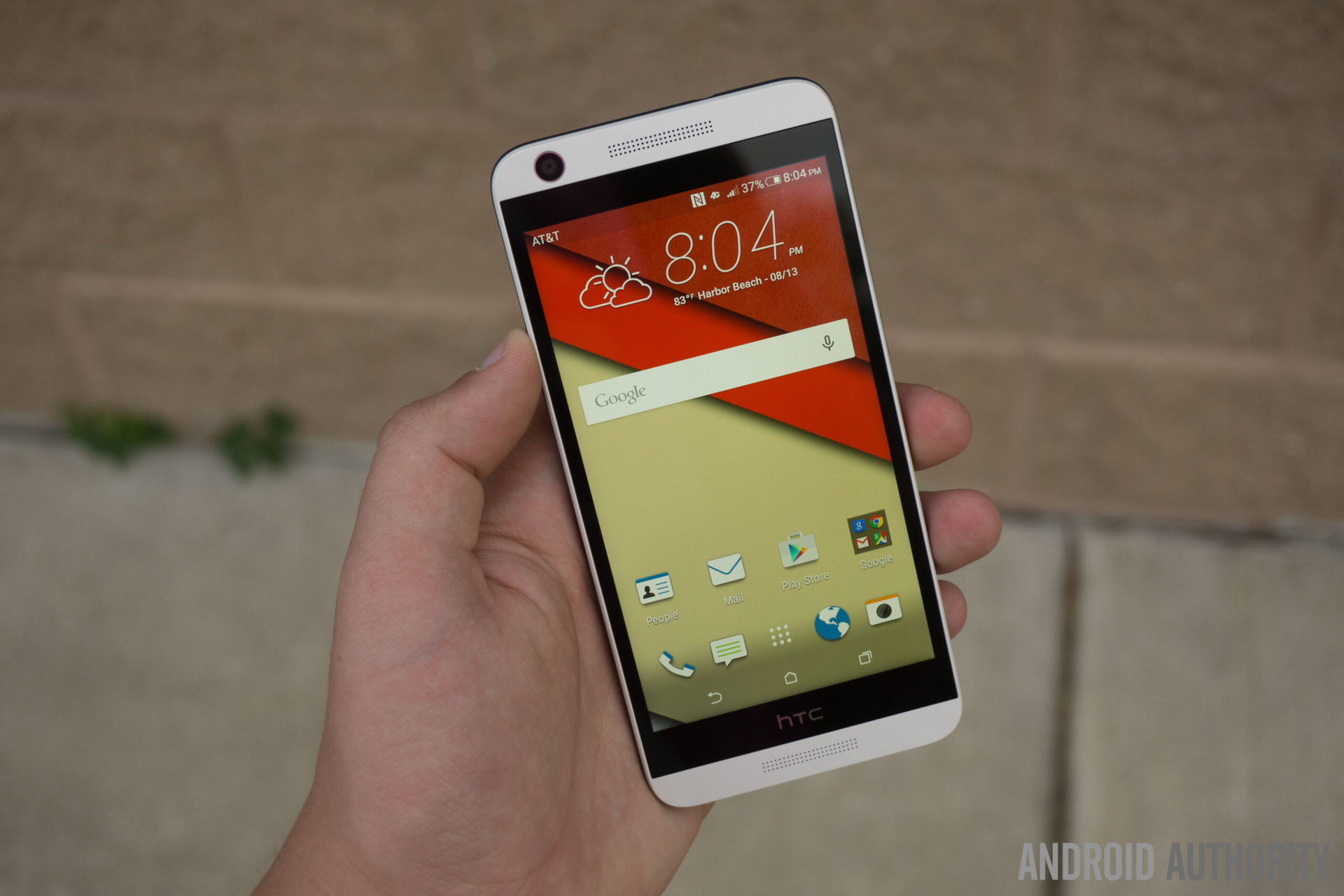
HTC Desire 626 review
August 25, 2015
HTC Desire 626
What we like
What we don't like
Our scores
HTC Desire 626
With a few exceptions, HTC’s diverse smartphone portfolio is largely divided into the flagship One series and the Desire line, that includes everything from entry-level to “premium mid-range” devices. Over the past two years, HTChas made some great additions to the Desire series, and is hoping to continue that with their latest entry-level smartphone. What does this latest affordable smartphone bring to the table? We find out, in this full review of the HTCDesire 626!
Design
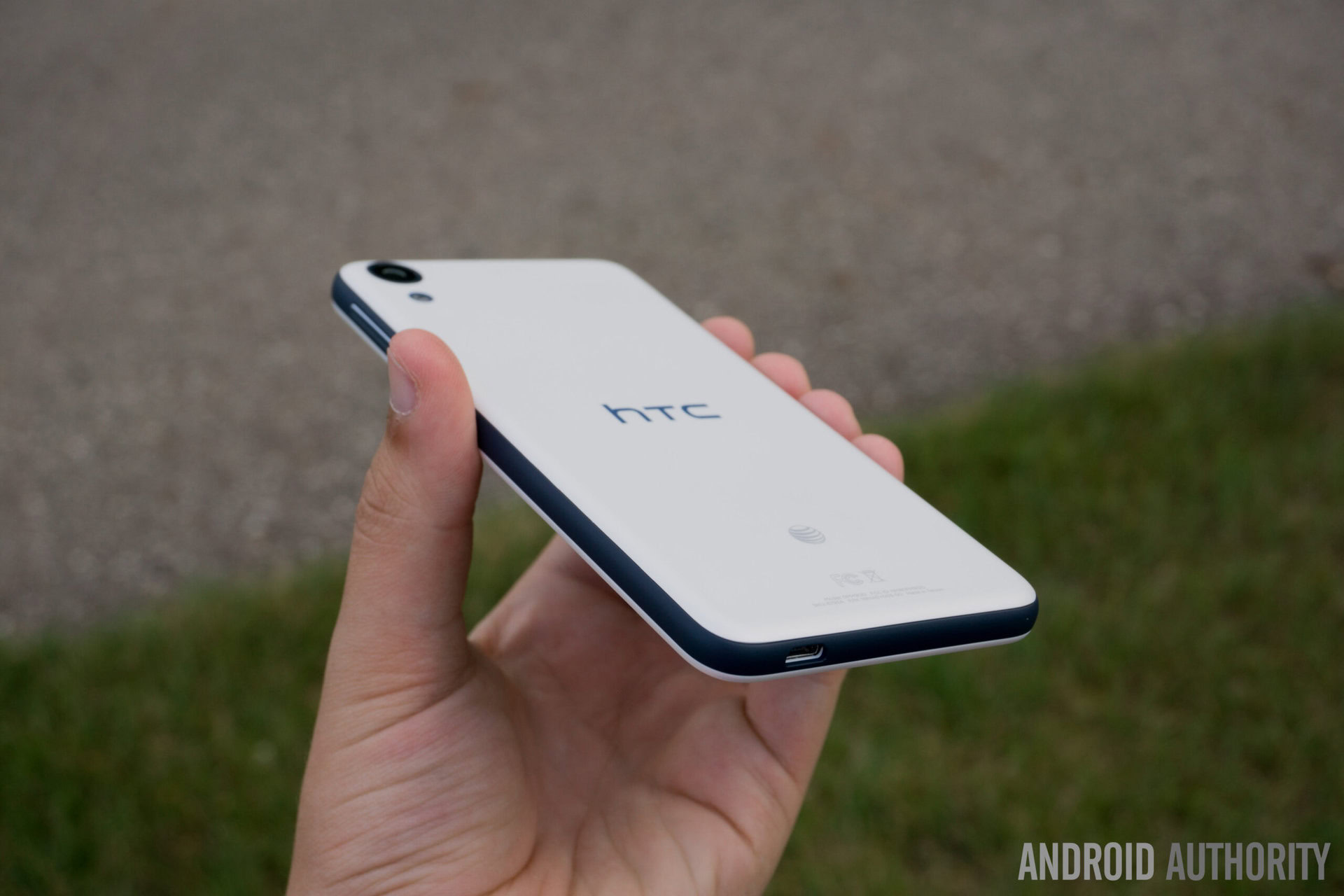
With the current crop of Desire smartphones, HTChas sought to maintain a consistent design language across the series, and that continues with the Desire 626, which also features a unibody plastic construction with a dual tone color scheme. With up to six different color options with complementary accents, it won’t be difficult to find something that suits your tastes.
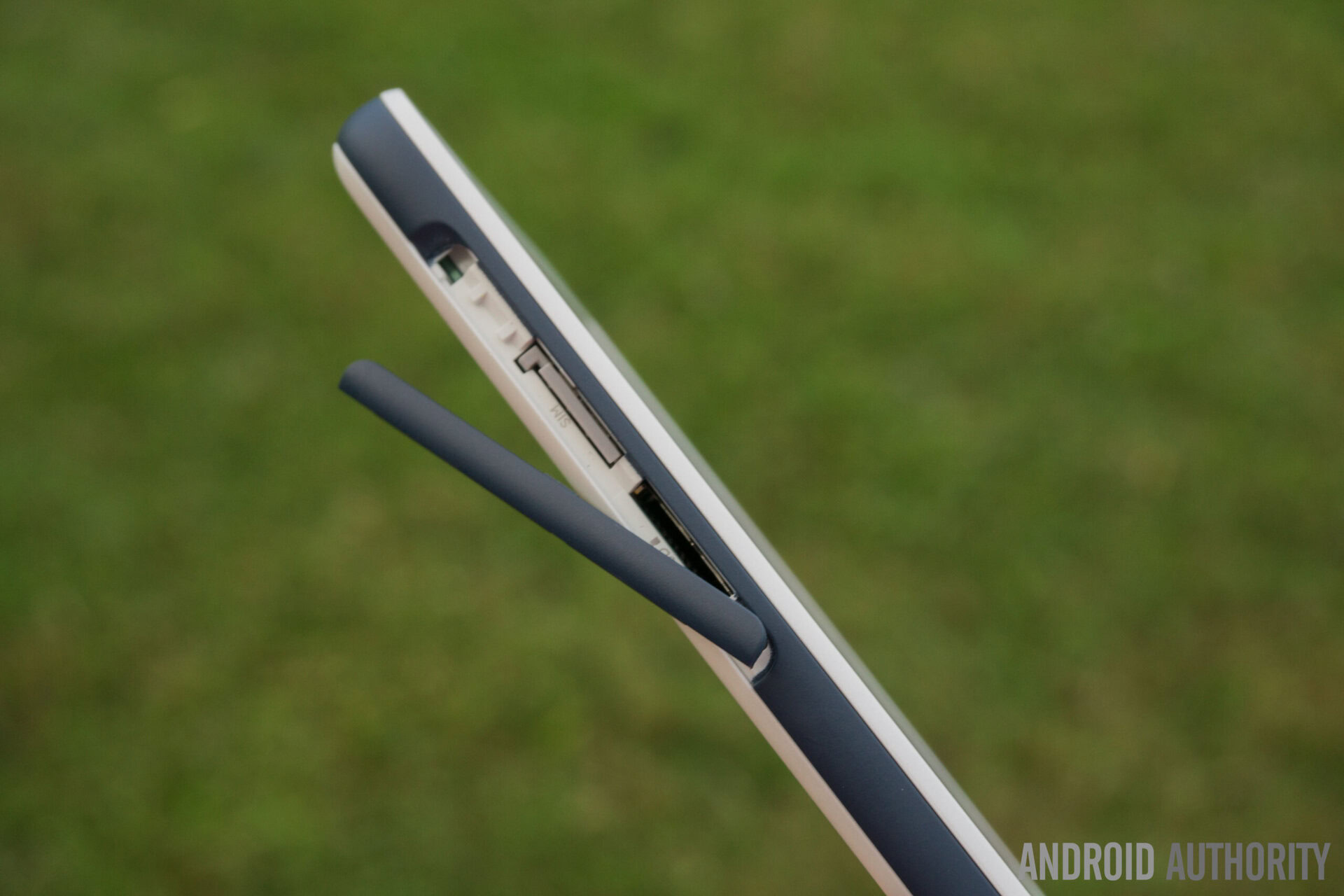
Going around the device, the power button and the volume rocker are to the right, and on the left is a flap that houses the SIM card slot and a microSD card slot. The buttons are unfortunately not to a very a high standard and offer very little tactile feedback when pressed, but there are no issues with presses being registered though. The headphone jack and microUSB port are placed at the top and bottom respectively. On the back is the primary camera, and up front is a single speaker unit below the HTCbranding, and above the display is the front-facing camera next to the earpiece.
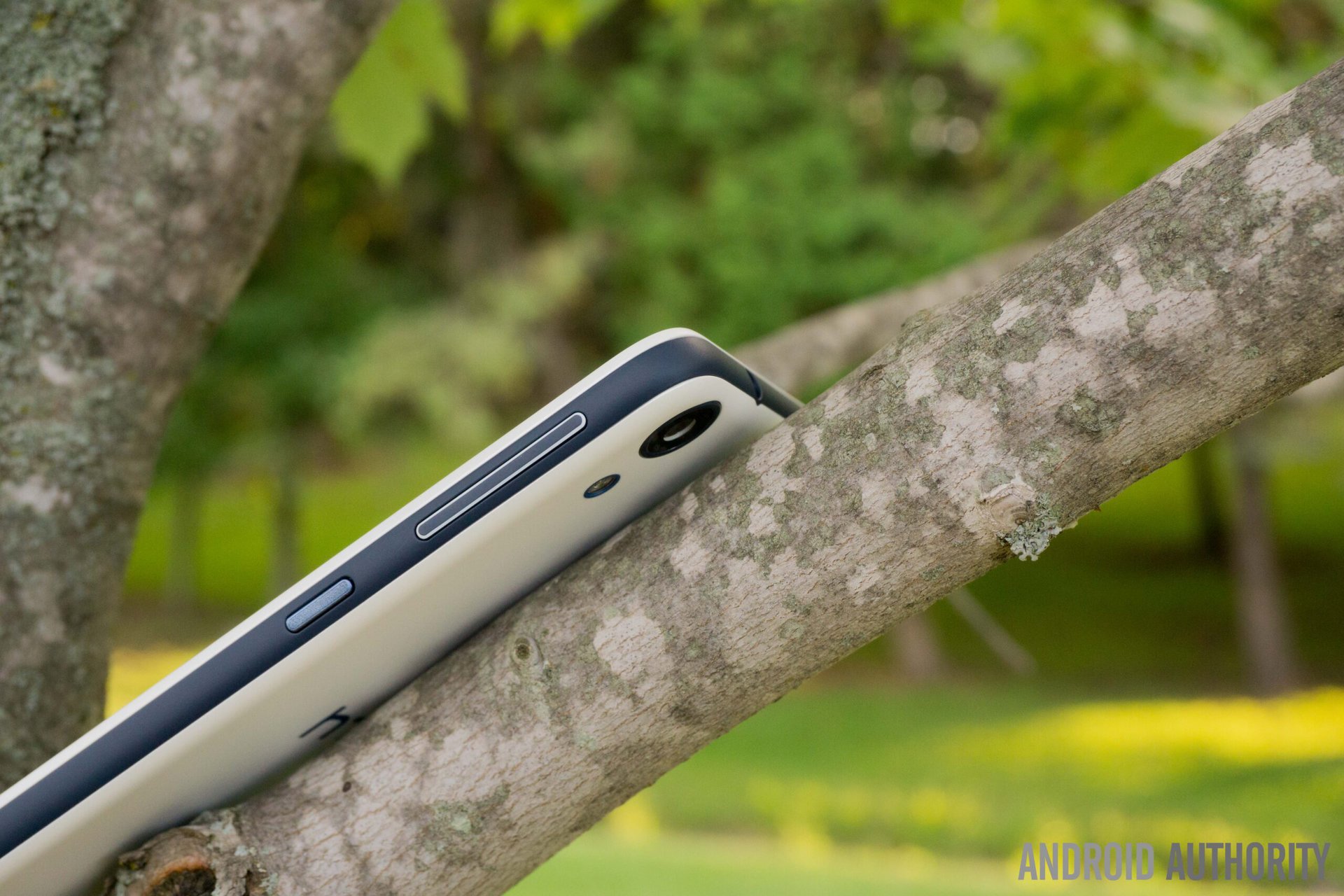
HTC is known for excelling in the design and build quality, and that remains true this time around as well. Despite being made entirely of plastic, the Desire 626 feels great in the hand, and with a thickness of 8.1 mm and weight of 139 grams, is quite substantial for an otherwise relatively compact device. Granted, the design may feel recycled at this point, but a good design is still just that.
Display

The Desire 626 comes with a 5-inch LCD3 display with a 1280 x 720 resolution, resulting in a pixel density of 294 ppi. The display is quite good given the price of the device, offering good brightness and viewing angles, with the color temperature leaning slightly towards the warmer side of things. Some form of software-based sharpening is happening across the display though, which results in the application icons and text looking a bit off, and unfortunately, it doesn’t look like there is a way to disable this setting.
Performance
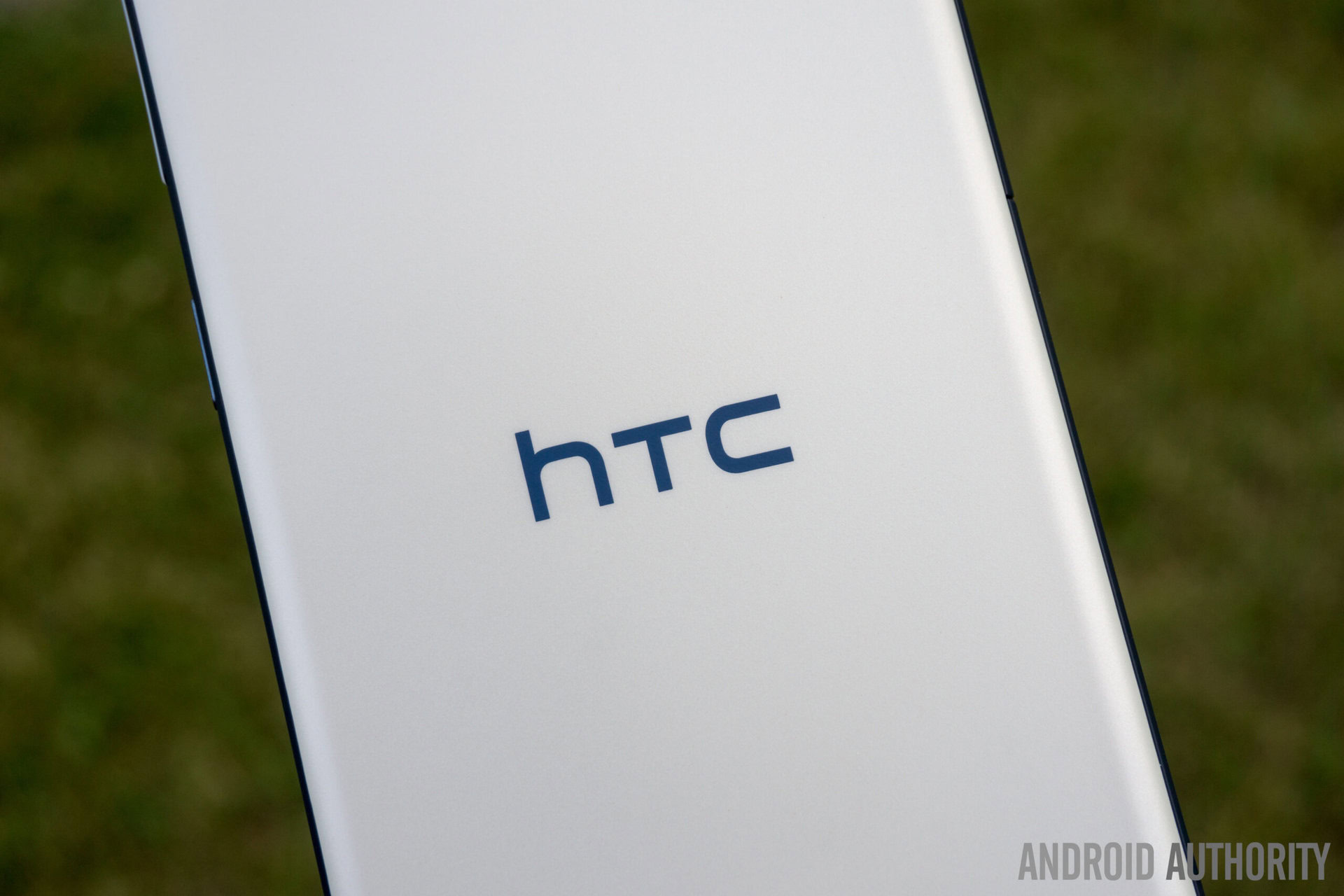
Under the hood, the Desire 626 packs a quad-core Qualcomm Snapdragon 210 processor, clocked at 1.1 GHz, and backed by the Adreno 304 GPU and 1.5 GB of RAM. Given the entry-level nature of this processing package, performance is a little on the slower side, and while the device never froze, there were noticeable instances of stutter and lag during animations, transitions, and other areas. The device handles multi-tasking quite well, and as far as gaming is concerned, while casual games run just fine, you will however see some slow load times and frame drops with more graphically-intensive games.
Hardware
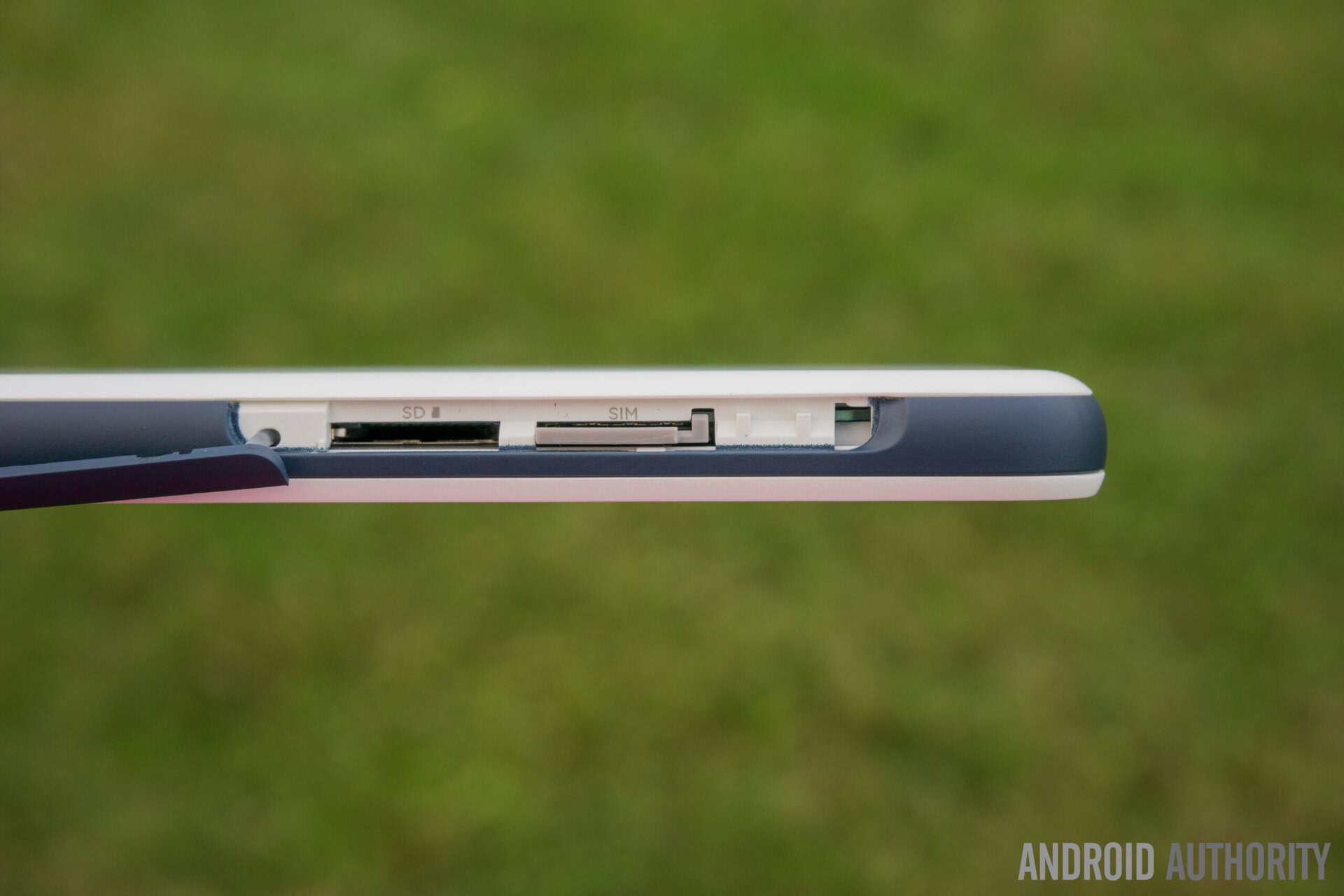
The HTCDesire 626 comes with only 8 GB of on-board storage, but it does allow for expandable storage via microSD card slot by up to 200 GB. The device comes with a standard suite of connectivity options, including 4G LTE support, and with the phone marked for release from most major US network carriers, being able to take advantage of high-speed internet access will not be a problem.
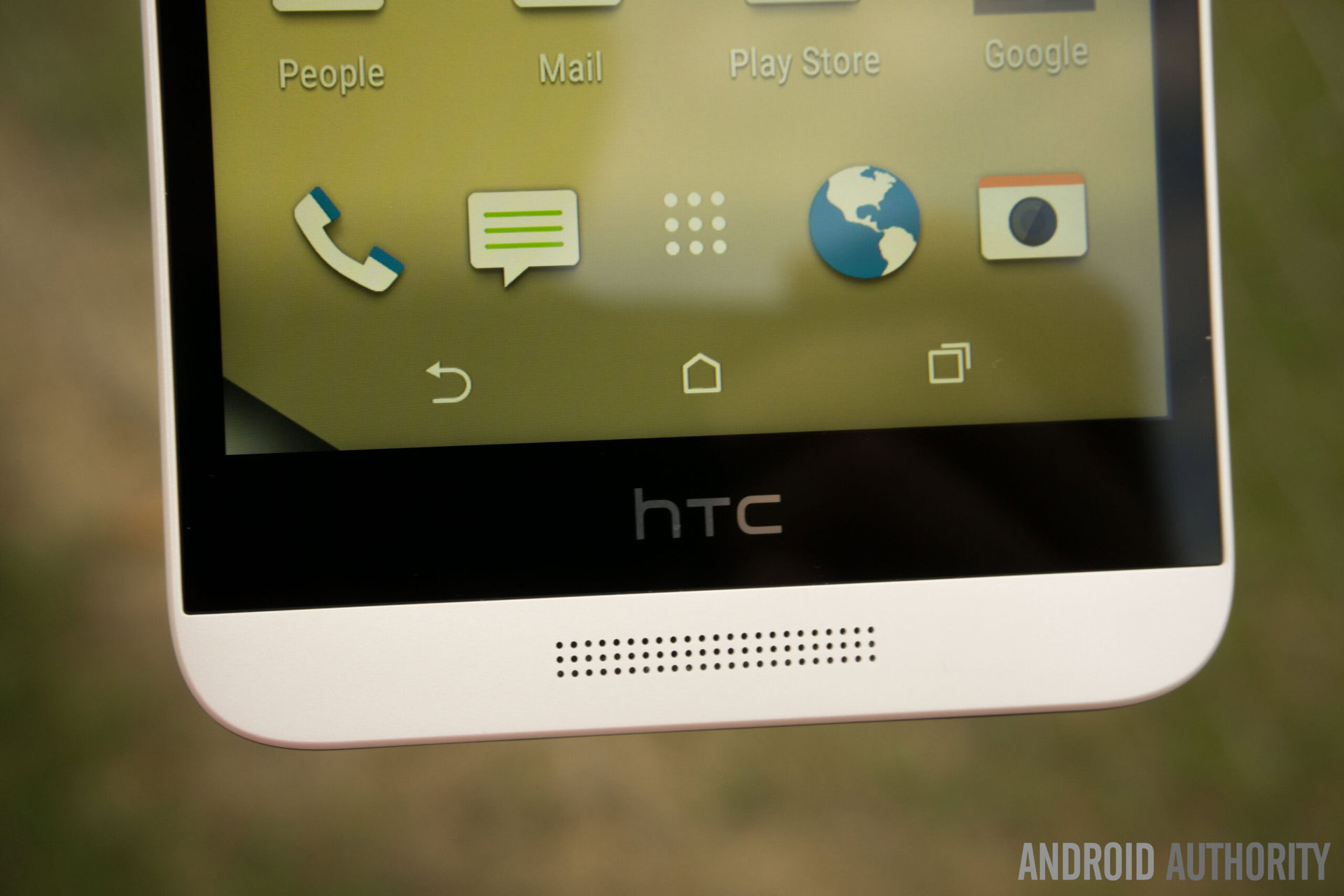
Despite appearances, the Desire 626 doesn’t retain the signature dual front-facing BoomSound speakers found with many other HTCsmartphones, instead packing a single speaker up front below the display. The speaker tends to get distorted at higher volumes, and doesn’t get very loud either, but this is still a far better implementation than any rear speaker setup.
The Desire 626 comes with a 2,000 mAh non-removable battery, which unfortunately allows for a disappointing battery life. The device ended up lasting for around 12 hours with just over 2 hours of screen-on time. It has to be mentioned here that HTCdevices don’t show screen-on time stats, and these values were found by using the Gsam Battery Monitor. There are a couple of power saving modes baked in to get that little bit of extra juice out of the device, but most users might still have a difficult time comfortably getting a full day of use from this smartphone.
Camera
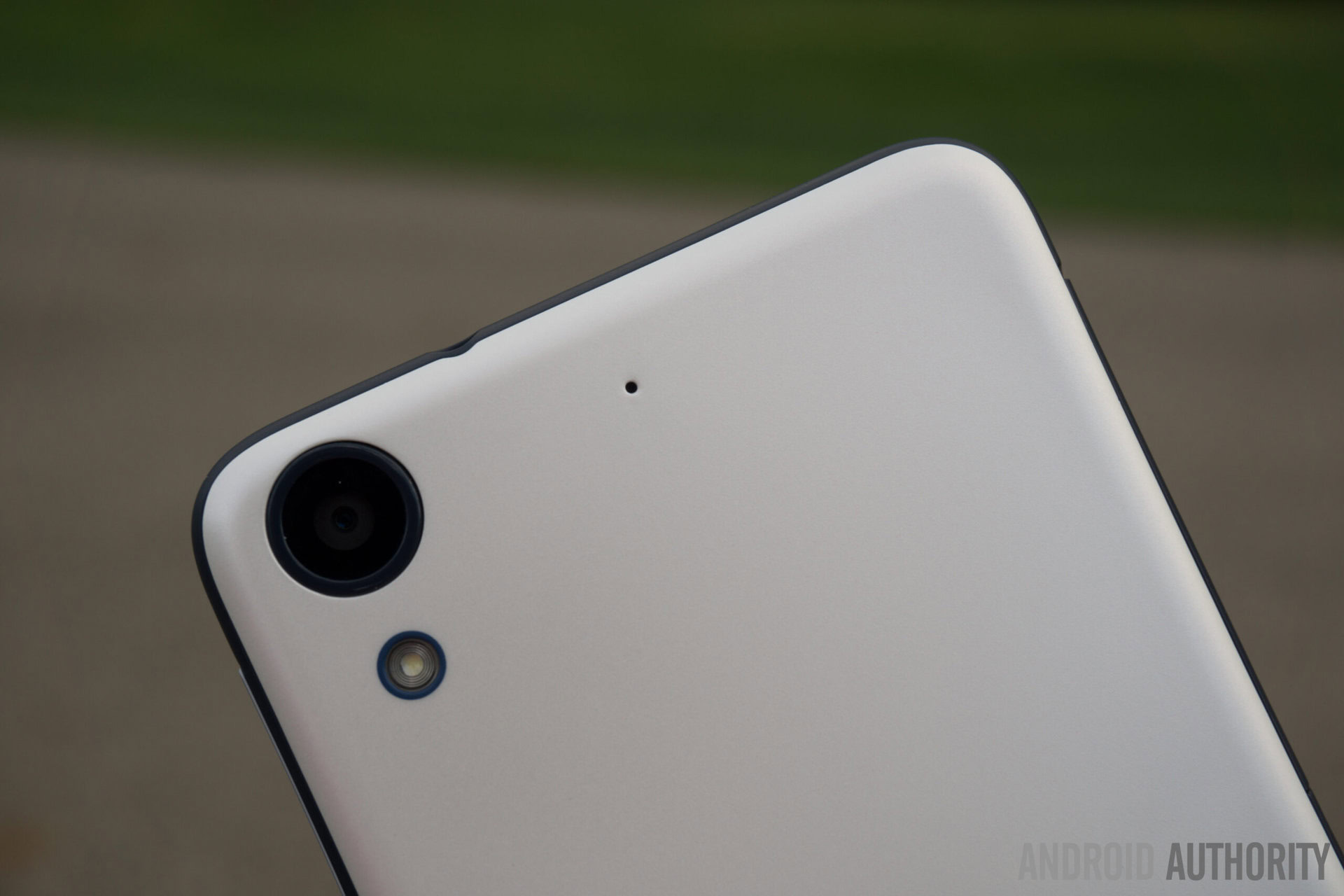
The HTCDesire 626 comes with an 8 MP rear camera with a LED flash, and a 5 MP front-facing unit. The primary camera is actually slightly better than average when compared to other devices that fall in this price range, and performs well in brightly-lit environments. It does struggle when processing bright colors though, but overall, allows for some nice looking shots.
HTC’s camera application is quite robust when it comes to features and settings, and apart from quite a few shooting modes, includes manual control with settings ISO, exposure, and white balance. You also have the ability to save your customized settings as a shooting mode for later use, which is a very nice touch.
Software
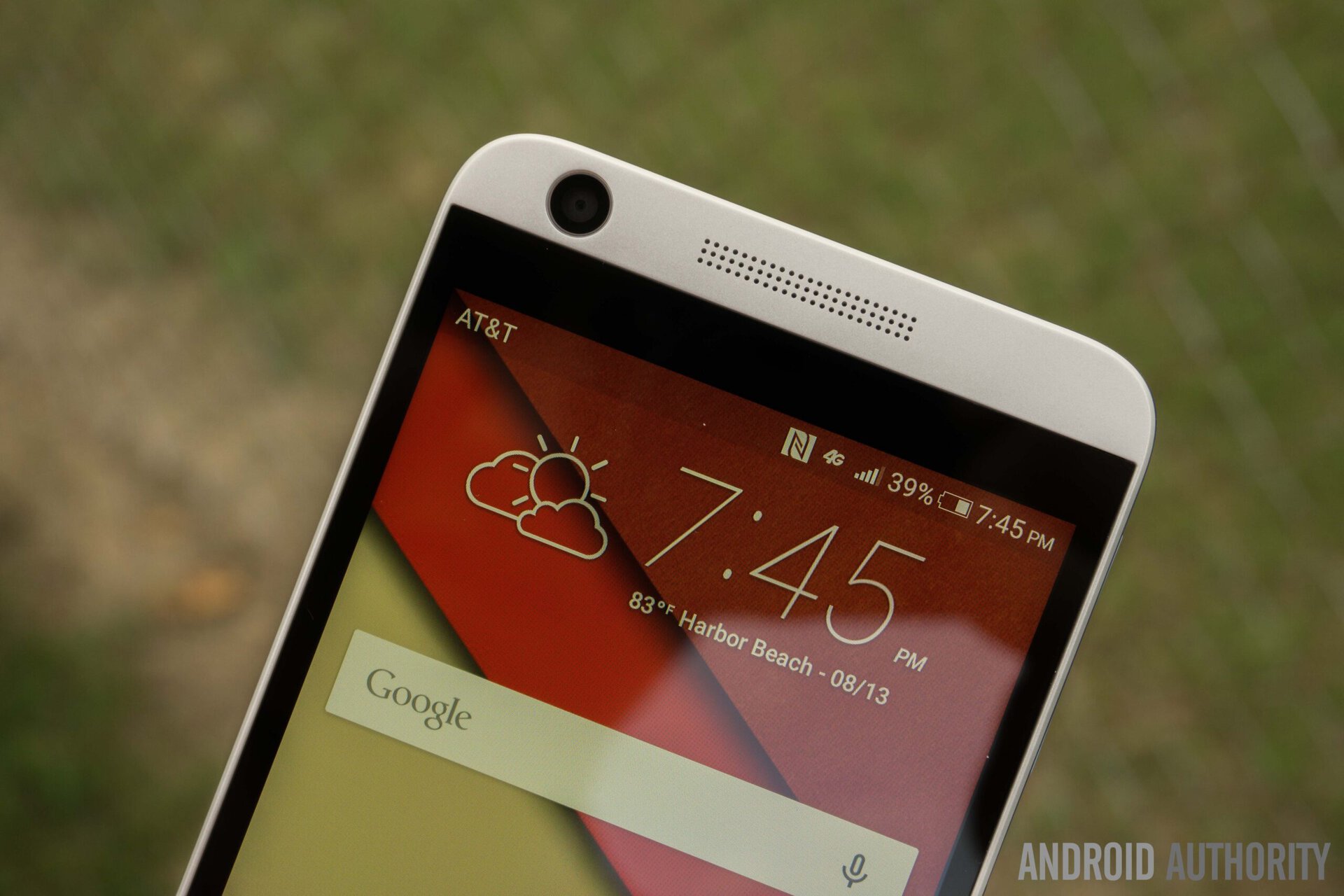
On the software side of things, the HTCDesire 626 runs Android 5.1 Lollipop, with the HTCSense 7 UI on top. While quite different from stock Android, HTC’s Sense UI is one of the better takes on Android out there with a clear focus on design and keeping things smooth. Returning are HTC staples like Blinkfeed, and there is also a powerful multi-tasking menu, customizable quick toggles, and the ability to tweak some general elements of the interface to cater the look and feel to your liking.
There is an unnecessary amount of extra applications packed into the software package though, and this is not only a result of the carrier bloatware that is usually found when a device is locked to a particular US network carrier, which is AT&T in the case of this review unit. Apps such as Digital Life, WildTangent Games, Keeper, KeyVPN, Lookout, Uber, Yellow Pages, and a whole collection of redundant HTCapps are pre-installed, including three separate email clients, which can be confusing. It’s all well and good if you find these apps useful, but luckily, you do have the option to uninstall most of them if you find them simply getting in the way.
Specifications
| Display | 5-inch LCD 3 display 1280 x 720 resolution, 294 ppi |
|---|---|
Processor | 1.1 GHz quad-core Qualcomm Snapdragon 210 processor Adreno 304 GPU |
RAM | 1.5 GB |
Storage | 8 GB expandable up to 200 GB |
Connectivity | Wi-Fi 802.11 a/b/g/n/ac Bluetooth 4.0 GPS USB 2.0 |
Camera | 8 MP rear camera with LED flash 5 MP front-facing camera |
Software | Android 5.1 Lollipo |
Battery | 2,000 mAh, non-removable |
Dimensions | 146.8 x 70.9 x 8.1 mm 139 grams |
Gallery
Pricing and final thoughts
The HTCDesire 626 will be available with most US network carriers soon. In the case of AT&T, the device is priced at $0.99 with a two-year contractual commitment, or for $185 under the AT&T Next program, and you can expect similar pricing strategies across the board. Keep in mind however that there are two versions of the device, with the same branding, which can be quite confusing, but it’ll be easy to spot the difference between the two with a quick glance at the specifications. Depending on your network carrier, this latest version of the device may also be known as the HTCDesire 626s.
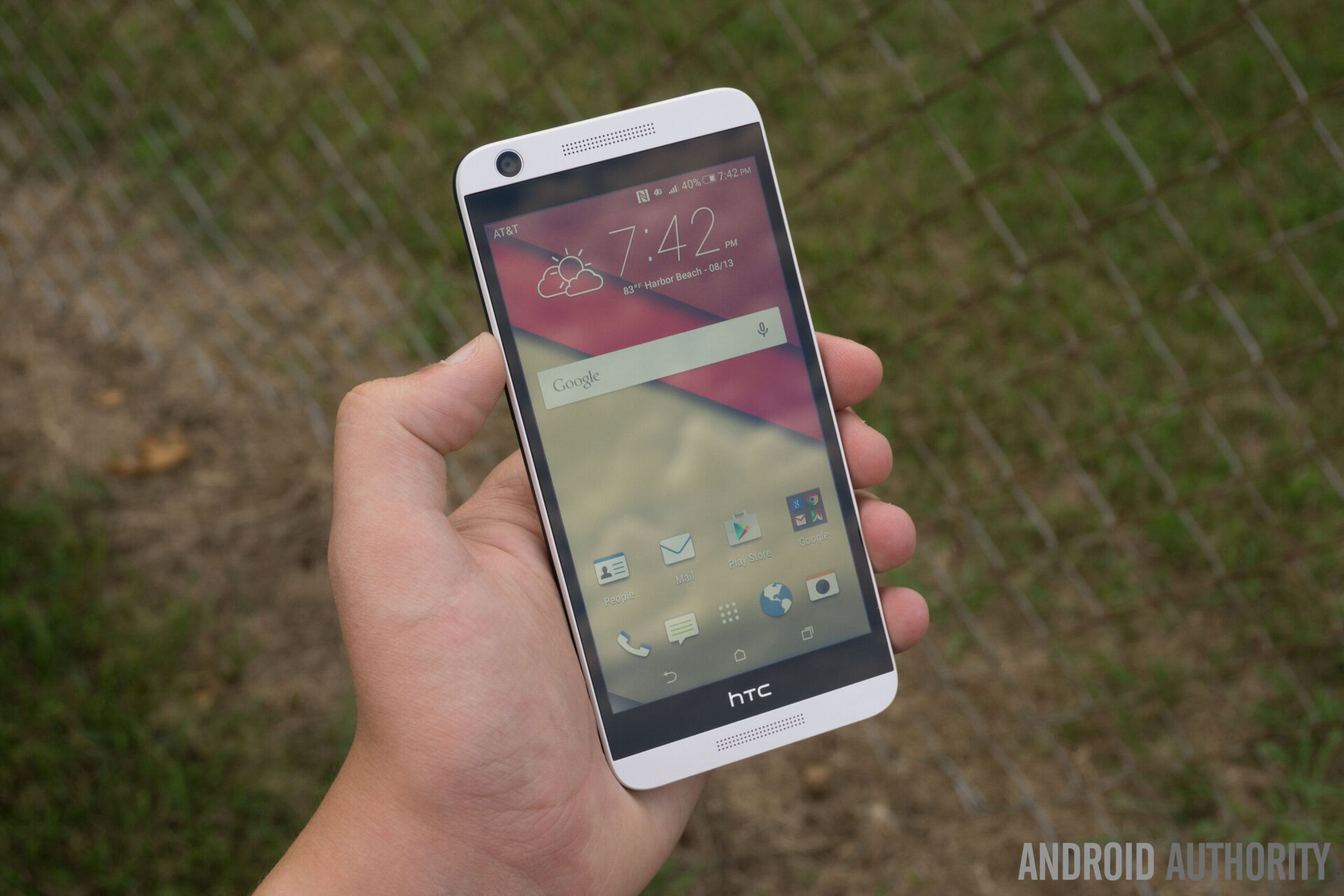
So there you have it for this look at the HTCDesire 626! Although this entry-level smartphone gets a few key aspects right, including its beautiful design and solid build quality, good camera, and excellent software experience, there are some glaring flaws that are hard to overlook. For starters, the performance isn’t entirely up to the mark, even for a low-cost smartphone, and the battery life is quite disappointing, which may be a turn off for some. While this would have been a fantastic entry-level smartphone only a year ago, a slew of great sub-$200 devices that have made, and will be making, their way to the market results in the Desire 626 being a tough sell.